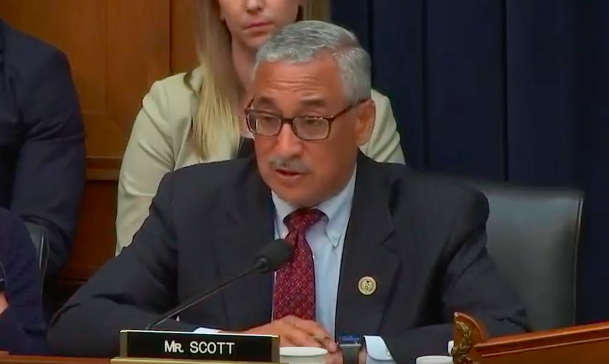The Every Student Succeeds Act (ESSA) provides a great deal of flexibility over the previous federal law when it comes to state design of their school accountability systems. It did, nonetheless, establish clear federal guardrails to help ensure those systems emphasize academic achievement and identify schools that are falling short in providing a high-quality education to students from historically underserved groups. The bill was passed in the House by an overwhelming bipartisan margin with a vote of 359-64. Even though all 64 no votes were from Republicans, an overwhelming majority of GOP House members (178) voted in favor.
That’s why we were disappointed to see Education and Workforce Committee Chairwoman, Virginia Foxx (R-NC; who was among the 178 “aye” votes) rail against, and misrepresent, the enforcement of those federal guardrails at last week’s ESSA hearing. Foxx:
- “Part of ESSA’s goal for state and school district autonomy was to force Washington to remain at arm’s length from states and school districts when it comes to education, and rest assured that this committee will be watching to ensure Washington keeps its distance.”
- “ESSA has stripped away powers of the Department of Education, such as the ability of the Secretary of Education to legislate through executive fiat, or the ability of the Department’s bureaucrats to substitute their judgment for states.”
Fortunately, Democrats stepped up on the accountability issue in support of an agency led by a Secretary whom, up until now, they’ve had very little agreement with.
Ranking Member Bobby Scott (D-VA):
“It is regrettable that we’re not hearing today from the US Department of Education…When Congress used to the CRA to block to the regulation of Title I’s core requirements that was unfortunate and counter to the bipartisan agreement in ESSA…That lack of regulation however means increased subjectivity in determining compliance with the law’s requirements which makes oversight actions of this Committee even more important.”
“ESSA was not a blank check to states and districts…ESSA is not and never has been a free for all…Feedback must be more, not less, consistent and more, not less, rigorous…ESSA is clear – it is the responsibility of the Department to review and provide feedback on ESSA state plans, make determinations of approvals or disapprovals based on compliance with the statute…and partner with states and school districts…”
Rep. Jared Polis (D-CO):
“I’m troubled now by some of the comments I’ve heard from my Republican colleagues who seem to be suggesting that now that we’ve passed the Every Student Succeeds Act, states can somehow do whatever they want…The goal of the Every Student Succeeds Act was to maintain of course our civil rights guardrails and safeguards, in effect, to provide school districts and states the flexibilities to do what works, but not to flexibility to fail and do nothing.”
“We shouldn’t be surprised the Department of Education is providing meaningful and positive feedback to the states that helps them develop and implement their ESSA plans, and that they’ll only approve plans that meet the law’s requirements…the requirements that we, as a body, overwhelmingly voted to include in the actual law.”
Rep. Susan Davis (D-CA):
“We have included a requirement in ESSA for 95% of all students in each subgroup to participate in annual assessments to ensure that low performing students are not encouraged to be absent on test-day…and if we’re disaggregating data that’s going to be a very important effort that moves forward for all students.”
Rep. Suzanne Bonamici (D-OR):
“I was disappointed…when the majority…got rid of all of [the regulations] through the Congressional Review Act and blocked important regulations related to statewide accountability systems, consolidated plans, and data reporting, and then at the same time the new Administration…attempted to rush through revised guidance for peer reviewers and then there was a modified template for state plans and new explanatory documents and all of this was taking place less than a month before the initial deadline for submitting the plans and after many states were well on their way to completing their plans.”
“What we really need is for the Department to play a reliable role in enforcing compliance with the statutory requirements within the law and clearing up ambiguity and helping states take advantage of the flexibility that’s such an important part of the law.”
Rep. Lisa Blunt Rochester (D-DE):
“Education and ESSA implementation is probably one of the things I’ve heard most from Delawareans. Whether it is the champions in civil rights that I talk to, those people are interested in lifting people out of poverty, to the corporations in my state which we have many, and all of the small businesses. This is probably one of the top issues…”
“I believe there’s a place for regulations. Can we overregulate things – yes. But there is a real place and what we’re hearing from all of your testimonies across the board is consistency, clarity – that helps people to do their jobs. It helps us to get better outcomes.”
